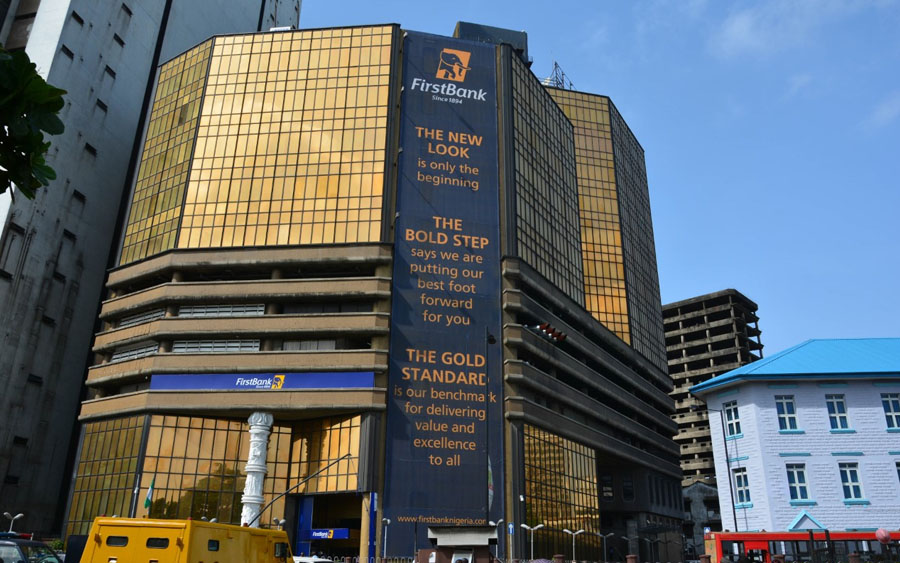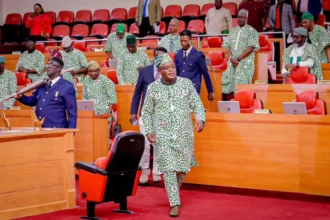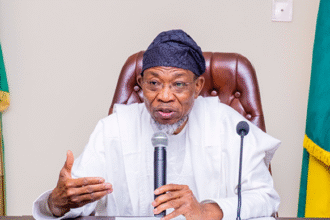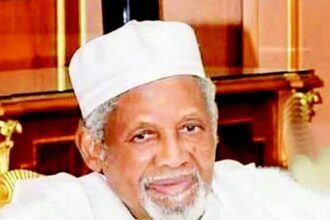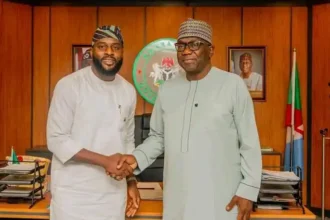...To get all news updates, Join our WhatsApp Group (Click Here)
Also Join our WhatsApp Channel (Click Here)
There should never be any word like “arguably” mentioned in the same statement that clearly describes the First bank of Nigeria as the biggest institution in the country in whatever context or perspective one chooses to look at it from. This is obviously because this iconic brand, in its one hundred and twenty-five years of establishment, has been part of the principal players in the building, financing of Nigeria and Nigerians.
The penultimate bank of Nigeria which boasts of the largest number of shareholders in the country; 1.3 million and over 16 million customers, a feat which no other institution comes close to matching, serves as a point of reference to every other financial institution. What makes it the biggest is not just obviously being the oldest, but, it’s massive coverage and aggressive expansion across the country, decades and decades of consistent huge customer support, investments. The scale of its operation influence in the market is simply understood this way, should anything goes wrong with First Bank, there will be systemic reverberations.
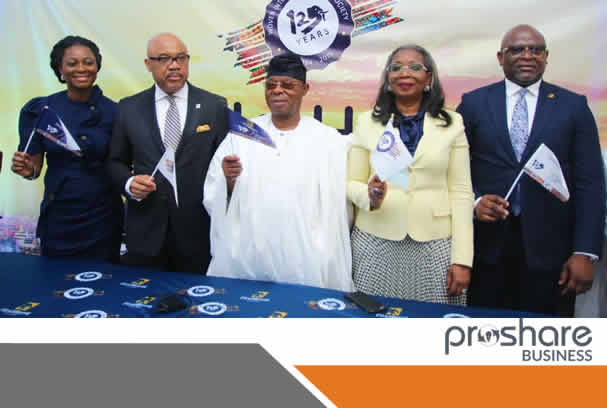
There are currently about 50 million banking people in Nigeria and 24 other banks. This means that over a quarter of all the banking customers put their financial trust in First bank.
In the early 20th century, the Bank of British West Africa (FBN) began expanding aggressively across the regions, with branches opened in Calabar, Zaria, Accra, Kano, Sierra Leone, and many more. When the Kano bank was opened in 1914, an illustrious merchant showed up with three camels saddled with twenty bags of money, deposited that day. Today, First bank has over 82,000 locations spread across all 774 local government areas of the 923, 763 square kilometers. This means that it is everywhere.
Speaking about the magnitude of the greatness, Ibukun Awosika, the Chairman, First Bank of Nigeria, stated that one will have to have an insider point of view to fully and truly have a grasp of what a great institution it is, “when I say “institution”, I meant that; an INSTITUTION. Think of how many different ‘future’ First Bank has gone through. Imagine when it was ten years old, the environment that it was in. 1894, by 1904, what did this region look like. By the time you got to the Amalgamation in 1914, you could only anticipate what was going to happen next. Walkthrough all of those seasons into the season of independence of the country, think of the season when we had a lot of cash crops and everything and the kind of development and the nature of the country and the region, and the emergence of the petrodollar and the different political systems, whether military or whatever we had overtime. And think of an institution that has continuously re-engineered itself effectively for each future that it had to encounter and successfully do it”.
For a bank that is 125 years old, First Bank is ‘not competing’ with its new generation counterparts, but, has remained tremendously relevant, outstanding, and consistently at the forefront over the years, with its capacity and ability to invent and reinvent itself. This has strategically positioned the bank to remain as the dominant financial institution, not just in Nigeria, but in the west and central part of Africa, where it currently plays.
Segun Agbaje, the Managing Director of Guaranty Trust Bank, who also happens to be the son of J.K. Agbaje, the first appointed African branch manager of First Bank could not hide his respect for the giant bank; “There are very few banks truthfully that I have a lot of respect for because I don’t think that a lot of banks are necessarily doing banking the way I would like it to be done and that probably one of the four or five banks that I think are doing banking properly in Nigeria is definitely First Bank nd that if a Guaranty Trust was able to have the staying power and the strength, and the brand and the trust that obviously First Bank has, then I think it would have done very well”.
Agbaje also reveals his latest competition with First Bank, “[It’s] over NIP volumes. I think that last year we controlled about twenty-five percentage of NIP and First Bank was about eighteen percent. Today, they have used their retail base to go up to about 22.9% of NIP, I think we are 20.9%”.
Some of the big features that stand First Bank out as a financial institution is its financial security, customer support, investment. By far, First Bank has the largest asset base; N5.3 trillion. This gives the customer peace of mind knowing his money is always safe. For over a century, Fist bank has been providing support for so many businesses of different sizes that form the engine of the economy. First Bank has been partners with thousands of both large conglomerates and small businesses.
In the 1920s when Nigerians were beginning to clamor against the unfair taxes by their colonial masters, First bank was there to provide heavy supports for the ordinary Nigerians, in all forms of agriculture, trade, and services. At this time, the bank had become the treasury for the governor and the Central bank of Nigeria, CBN, with a customer base of hundreds of thousands.
During every landmark development of and in Nigeria, First Bank has been there. From roads to bridges, to dams. It was there providing financial support. From the groundnut pyramids and cash crops of the 1930s to the first power lines to the first major railway project that connected the two ends of the country, to the Niger bridge linking major cities, First Bank played a major role in these landmark developments. Even today, the flying elephant has continued to carry the modern agricultural developments, privatization of the power sector, and some of the country’s largest infrastructural projects, both public and private.
First Bank has not only the nation in diverse ways, it is impacting individual lives with valuables in areas of health, education, welfare, and so many other areas. Through its initiative, SPARK, Start Performing Acts of Random Kindness. This initiative has restored visible hope in the family of Kate Ogbonnaya, a recipient whose daughter, Ijeoma Gold Ogbonnaya had a hole in her heart and had a successful surgery. So many others have benefited from this tremendous initiative. Many students have seen their education dreams fulfilled, schools have received buses to help the transportation of students to and fro the school premises.
Bringing the Automated Teller Machine, ATM, and introducing the Western Money Transfer, no doubt, this pioneering bank has continued to evolve and deliver values to generations of Nigeria.
You can get every of our news as soon as they drop on WhatsApp ...To get all news updates, Join our WhatsApp Group (Click Here)
Also Join our WhatsApp Channel (Click Here)



